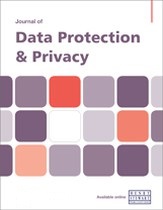The right to know: Comparative analysis of notification requirements in public space surveillance systems
Abstract
The proliferation of advanced surveillance technologies in public spaces presents unprecedented challenges to privacy rights and democratic governance. While authorities gain extensive visibility into citizens’ lives through artificial intelligence (AI) and machine learning (ML) capabilities, a critical ‘transparency asymmetry’ has emerged between state surveillance capabilities and citizens’ awareness of such monitoring. This paper employs comparative legal analysis, examining constitutional provisions, legislation, administrative regulations and court decisions across multiple jurisdictions, with a primary focus on the European Union (EU) and the US. The study draws upon primary legal sources, academic literature, policy documents and technical standards to evaluate the effectiveness of various notification approaches. The analysis reveals three fundamental structural failures in existing notification systems: (1) a disconnect between formal notification and substantive understanding of surveillance implications, particularly in systems incorporating AI; (2) ‘consent fatigue’ that undermines notification effectiveness; and (3) fragmented standards creating significant accountability gaps in privacy protection. The EU has developed comprehensive notification requirements through the General Data Protection Regulation (GDPR) framework and court decisions, while the US maintains a more limited ‘notice-and-choice’ approach. This paper proposes a dynamic constitutional notice framework that reconceptualises notification requirements as dynamic constitutional obligations rather than static procedural rules. This framework bridges the European dignity-based and US property-centric approaches while providing flexible implementation mechanisms that can adapt to emerging technologies while preserving democratic oversight.
The full article is available to subscribers to the journal.
Author's Biography
Bartolome Torralbo Munoz Bartolomé Torralbo Muñoz holds a PhD in Law from the University of Córdoba and the University of Bologna (2022), having completed a joint doctoral programme under the supervision of Professors José Manuel Palma Herrera and Vittorio Manes. He earned his Law degree from the University of Córdoba in 2016, where he began his academic career as a student research assistant in Criminal Law. A recipient of a Spanish Ministry of Education Collaboration Grant, he completed his undergraduate thesis in this field. Following his degree, he was appointed Honorary Collaborator in Criminal Law and pursued a Master’s in Peace Culture, Conflict, Education and Human Rights, jointly offered by four Spanish universities. Graduating top of his class, he received the Master’s Extraordinary Award. He was then granted a competitive scholarship for PhD training, which supported his teaching and research activities in Criminal Law. His research has focused primarily on corruption, political parties and illegal financing, while also addressing emerging challenges posed by artificial intelligence (AI) in criminal law. He has published extensively, presented at national and international conferences and completed a six-month research stay at the University of Bologna, earning the International Doctorate distinction. As a lecturer, he has taught core and advanced criminal law courses, supervised numerous theses and participated in teaching innovation projects, for which he has received additional training and published scholarly contributions.
Eyal Sabro , Attorney LL.B, LL.M, is a private investigator and crisis management expert. With over 30 years’ experience, he is the founder and director of a leading investigation company, consistently ranked as Israel’s top private investigation agency in family law. He also founded a law company specialising in family law and privacy protection. His extensive experience as a private investigator gives him a unique advantage in handling family law cases. At the same time, his legal expertise enhances his ability to offer comprehensive solutions in private investigations. Eyal is well regarded for his meticulous attention to detail and strategic approach. He serves as a privacy protection consultant for local authorities in Israel and holds certifications in this field, including from the Israeli Bar Association and the National Cyber Directorate. He also has specialised training in family law. In addition to his professional work, Eyal has lectured on witness examinations at Tel Aviv University’s Faculty of Law. A sought-after speaker in private investigations and privacy protection, he is a regular guest on Israeli television programmes and hosts a weekly radio segment. He is the author of four books on private investigations and contributes a regular column on the subject in numerous local and international publications. Eyal is currently a second-year PhD student at the University of Cordoba, researching the legal right to privacy.
